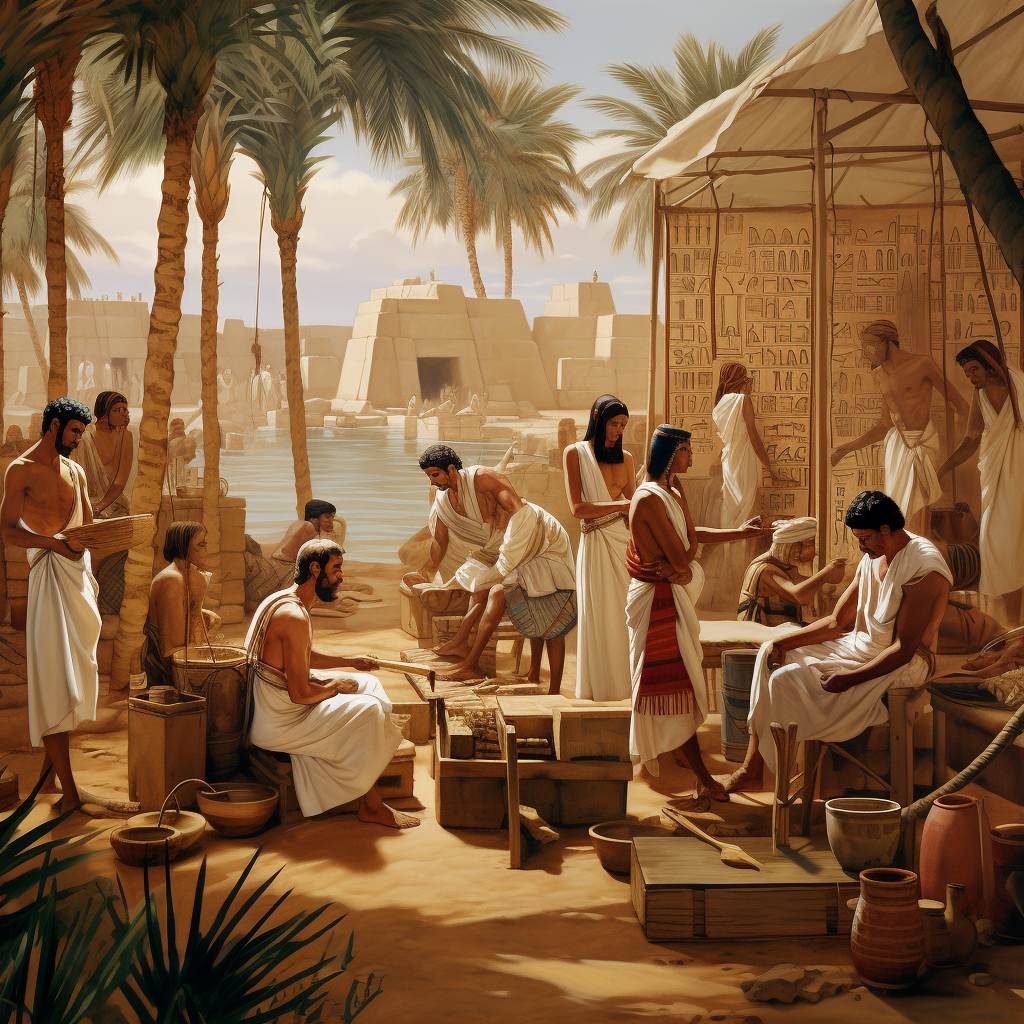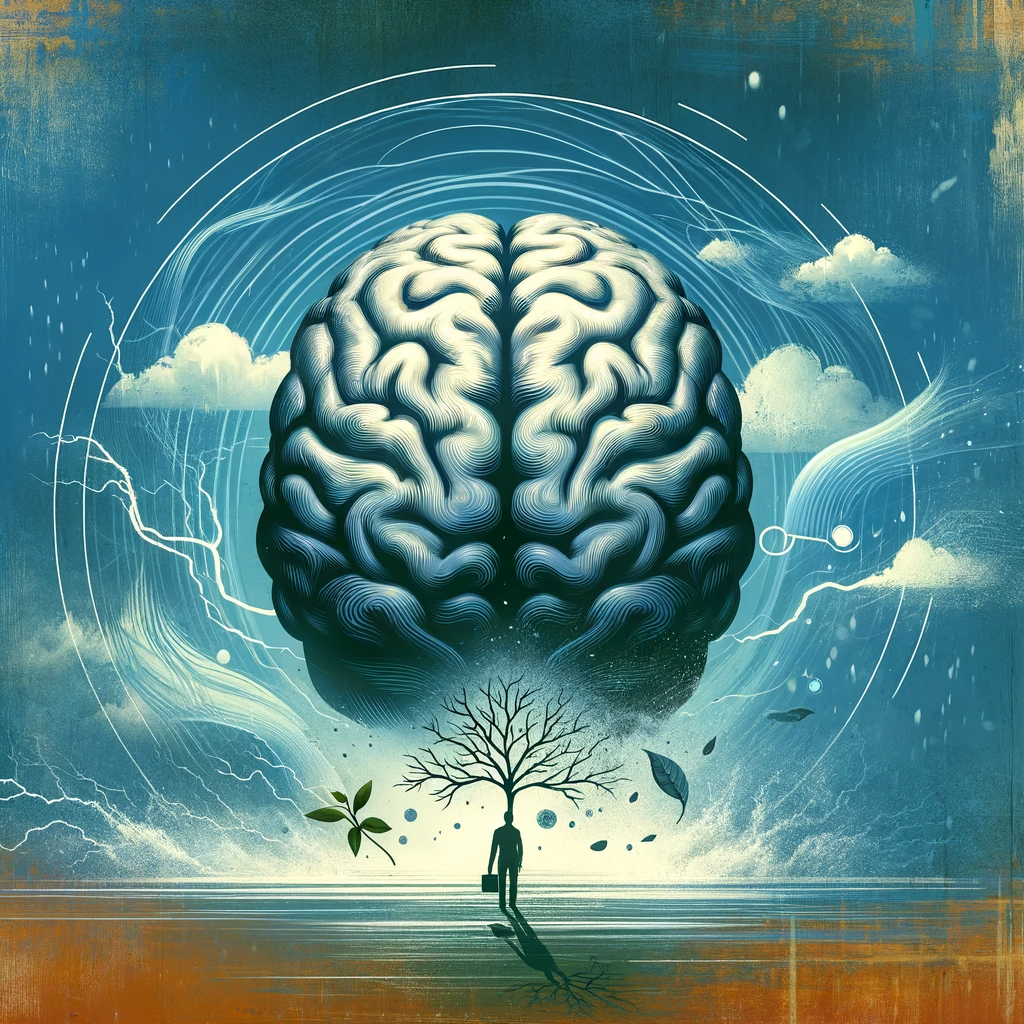Hormesis, the intriguing concept that moderate stressors can amplify resilience and health, has deep historical roots. Before modern science decoded this phenomenon, ancient civilizations unknowingly harnessed its potent benefits. Journey with me through the annals of history, observing how time-tested traditions and revered philosophers celebrated hormesis in their unique ways.
Prehistoric Era: Nature’s Brutal Classroom

Life during prehistoric times was not for the faint-hearted. Wild predators, drastic climate changes, and sporadic food availability shaped the daily existence. These harsh conditions inadvertently led to intermittent fasting among early humans. Far from a modern diet trend, this adaptation became a survival necessity.
Here’s an intriguing thought: Our bodies may have evolved specifically to adapt and thrive amid such stressors. The genetic blueprints that have been passed down to us were forged in the crucibles of these challenging environments.
Now, living in an age of unparalleled comfort, we might inadvertently be setting the stage for diseases of excess comfort. By neglecting the hormetic challenges that our ancestors routinely faced, we could be depriving our bodies of essential adaptive stimuli, leading to health complications.
Today’s science supports the notion that conditions like intermittent fasting, a relic of our past, can promote cellular repair processes, enhance brain health, and extend lifespan.
Ancient Greece: The Doctrine of the Golden Mean

The Ancient Greeks, with their immense wisdom, recognized the value of balance and moderation. Philosopher Aristotle’s doctrine of the “Golden Mean” beautifully encapsulates this:
In every pleasure and pain there is an excess, a deficiency, and a mean.
The world-renowned Olympic Games, originating in Olympia, Greece, showcased athletes who underwent rigorous training regimens, subjecting their bodies to stressors to enhance performance and stamina.
Moreover, Hippocrates, often called the father of medicine, acknowledged:
Natural forces within us are the true healers of disease.
His treatments often included herbs that, when taken in larger doses, could be toxic. However, in controlled amounts, they stimulated the body’s natural healing processes.
The Fearless Vikings: Cold Seas and Steely Resolve

The Vikings, seafaring warriors from the late eighth to early 11th century, were more than just raiders; they were explorers, traders, and settlers. With their longboats, they journeyed across treacherous seas, venturing as far as North America. Their resilience was forged in the cold climates of Scandinavia, a place where survival itself was a testament to human endurance.
The brutal cold of Nordic winters and the icy waters they sailed demanded a type of hormesis. Repeated exposure to these extreme conditions would have inadvertently increased their cold tolerance, metabolic efficiency, and overall resilience. Their diet, rich in fish and seasonal produce, provided them with essential nutrients and omega-3 fatty acids, aiding their cognitive function and physical health.
The Vikings’ lifestyle, from their challenging voyages to their robust feasts, echoes hormetic principles. Moreover, the sagas and poems of Norse culture frequently reference the need to embrace hardship, with famous lines like, “Bare is the back of the brotherless man,” underscoring the value they placed on resilience and camaraderie.
The Roman Empire: From Frigidarium to Stoic Philosophy

For the Romans, a bath wasn’t merely a routine—it was an embodiment of resilience. The intricacies of Roman baths, transitioning between the chilling ‘Frigidarium’ and the steamy ‘Caldarium’, were not just luxury indulgences but practices that improved blood circulation and strengthened mental fortitude.
Echoing the spirit of embracing challenges, the Stoic philosopher Seneca mused:
Difficulties strengthen the mind, as labor does the body.
His words capture the very essence of hormesis long before the term existed.
Ancient Egypt: Desert Adaptations and Therapeutic Toxins

Imagine a civilization that thrived amidst the harshest of deserts. For the ancient Egyptians, the intense sun and shifting sands weren’t mere adversaries but tools of adaptation. Their intricate architectural marvels, built without modern machinery, demanded unparalleled physical exertion, epitomizing the application of stress to achieve grand outcomes.
The Ebers Papyrus, an ancient Egyptian medicinal treatise, speaks of various herbal concoctions. Intriguingly, some of these remedies contained potentially harmful substances in minuscule amounts, possibly an early form of hormetic therapy. Additionally, the sun-worshipping Pharaoh Akhenaten, with his open-air temples, might have instinctively tapped into the benefits of controlled heat exposure, long before saunas became a global wellness trend.
Conclusion: Tapping into Age-old Insights

Reflecting on the words of the esteemed philosopher Confucius:
Study the past if you would define the future.
This sentiment rings especially true for hormesis. As we peer into the past, uncovering ancient practices and wisdom, we are better equipped to navigate our health journey, merging timeless insights with the vanguard of scientific discovery.
Engage Further: How can we integrate ancient wisdom into our modern lives for optimal health? Share your thoughts in the comments below!
Discover More: Dive deeper into the world of hormesis with our extensive library of articles and research papers.



